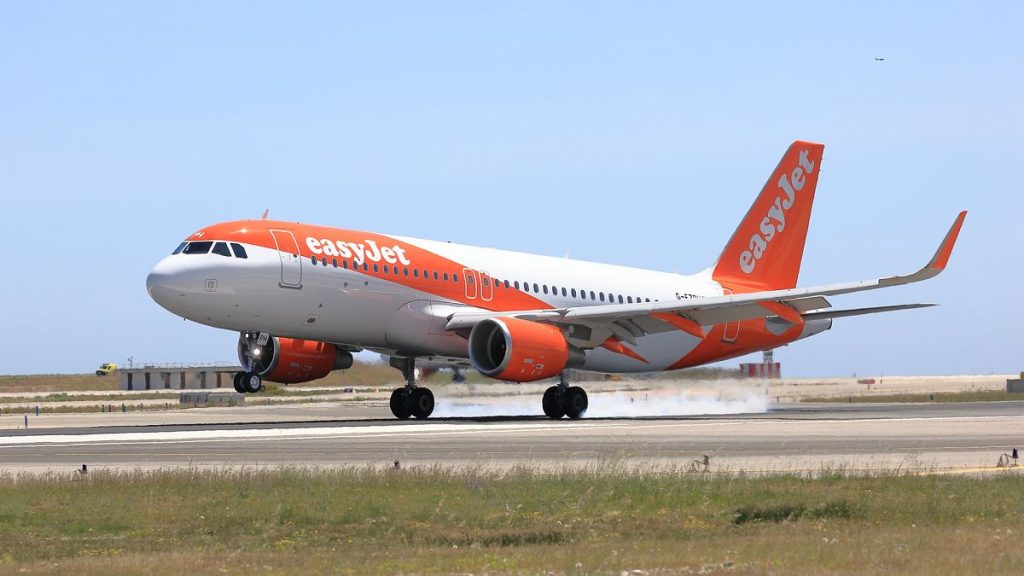EasyJet has reported impressive financial results for the fiscal year ending on 30 September 2024, highlighting a significant growth in profits, driven largely by heightened summer travel demand. The British low-cost airline revealed that its headline profit before tax experienced a 34% increase from the previous year, amounting to £610 million (€731.14 million). This upsurge in profitability was attributed to record passenger numbers during the summer months, which also bolstered EasyJet holidays, whose profits before tax surged by 56% to £190 million (€227.73 million). Consequently, EasyJet’s shares reacted positively, rising by 0.22% in response to the financial update. Overall, the airline demonstrated a robust performance throughout the year, with profit per seat improving by 24% to £6.08 (€7.29), edging closer to its projected target of between £7 and £10 (€8.39-€11.98) per seat.
In its outlook for the coming financial year, EasyJet anticipates a modest increase in seat capacity by approximately 3%, reaching around 103 million seats, reflecting confidence in continued demand. The airline is optimistic about reducing its seasonal winter losses, particularly with strong first-quarter performance expected in FY2025. However, it also cautioned about potential challenges in the second quarter, primarily related to holiday timing around Easter that may dampen performance. The positive projections for EasyJet’s capacity show a commitment to meeting strong consumer demand while addressing seasonal fluctuations that often characterize the airline industry.
In a notable change, EasyJet’s current CEO, Johan Lundgren, announced he would step down at the start of 2025 after seven years in the role, with Kenton Jarvis, the airline’s chief financial officer, appointed as his successor. Lundgren remarked on the strong financial outcomes, which he attributed to effective execution of the company’s strategic plans along with the enduring popularity of EasyJet’s flight and holiday offerings. He expressed confidence in leaving behind a robust organization poised for future growth and profitability, with a long-term goal of sustainably generating more than £1 billion in annual profit before tax. Both Lundgren and Jarvis emphasized the positive outlook for EasyJet’s future, particularly in light of the strong demand for low-cost travel options among consumers.
The success of EasyJet’s holiday package division emerges as a crucial factor behind its recent financial performance, especially in a climate where cost-conscious travelers seek value-for-money options. Richard Hunter of Interactive Investor highlighted how the airline’s package offerings align well with consumer preferences during periods of economic uncertainty. The family holiday market continues to be resilient, suggesting that vacation spending remains a priority for many despite budget constraints. EasyJet’s strategy to leverage its established network of destinations, which are often appealing and difficult for competitors to replicate, has also contributed to maintaining lower prices for consumers.
Investment analyst Dan Coatsworth emphasized the broader implications of EasyJet’s results as reflective of a robust demand for leisure travel, indicating that vacations are deemed essential by many consumers. The successful introduction of holiday packages is an outcome of Lundgren’s strategic efforts, and new CEO Kenton Jarvis is expected to further advance this initiative, continuing its trend of gaining market share within the holiday sector. Yet, while EasyJet’s foundational improvements are clear, Coatsworth also warned of potential challenges ahead including medium-term profit targets and external pressures such as supply chain disruptions and fluctuating fuel costs that could pose hurdles for the airline as it navigates its growth trajectory.
Overall, EasyJet’s impressive financial results for 2024 underscore a strong recovery in the airline sector post-pandemic, marked by increased profits and strategic growth efforts. As the airline prepares for leadership changes and ongoing market fluctuations, its successful transition into the package holiday market and its commitment to low-cost services position it well to meet the evolving demands of travelers. Continued exploration of consumer needs and operational enhancements will be critical as EasyJet seeks to maintain its upward trajectory while addressing the complexities of the airline industry landscape in the years to come.














